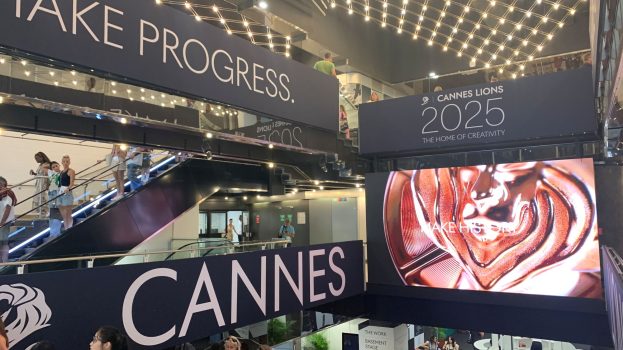One of the most interesting sessions on day two of Advertising Week was “Game Change: The future of work is play in the engagement economy.”
It’s a long title, and may sound like a long shot – “the future of work is play?” – but the folks at PHD backed up the intriguing premise with trends, stats and the most compelling kind of evidence: they’re doing it themselves, and according to PHD’s worldwide planning and strategy director Mark Holden it’s already paying off.
First, the stats:
There are a billion gamers around the world who spend at least an hour a day playing games. And gamers can be fanatical – Grand Theft Auto V had $800 million in sales on its release day and the average Call of Duty gamer spends 170 hours a year playing the game. This fascination extends to the mobile gamers, with Angry Birds racking up 300 million minutes of play a day. And gaming engagement far exceeds other media.
On the flip side: 89% of global workers are not engaged in their day-to-day activities, and the cost is $2 trillion annually worldwide, according to Gallup.
Next, the trends:
According to Gartner, by 2014, 70% of the top 2,000 global organizations will have at least one gamified app, and by 2015, 50% of the companies that manage innovation will gamify those processes.
All of which leads PHD to conclude that tapping the motivation behind those seven plus billions of hours a week of gameplay to engage workers will have a major impact. “Play will be to the 21st century what work was to the industrial age” is a quote from their new book, Game Change.
Citing the engagement economy triggers – that we’re driven by basic human impulses to be challenged to master new skills, and put those skills to the mastery of something important – decisions about where to work, what to buy and brands to be loyal to will be based on how well organizations or products fulfill our urgent desire for wholehearted meaningful challenges.
Although the word gamification has been bandied about in recent years, the concept was actually invented by Napoleon. When he had trouble getting food to his troops he put up a bounty for ideas to keep food from spoiling, and canning was the solution.
World of Warcraft, which some players enjoy more than the real world, has a self-sustaining economy. Seven million lay $20 a month to play, and when social scientist Nick Yee did a six-year longitudinal study to see what damage this has done to society, he found the opposite, massively multi-player online games (MMOG) are actually massively multi-player work environments (and when looking at the workplace found work was just a game that’s so bad you have to pay people to play it).
The top five workforce and World of Warcraft skills overlap: organizing teams, assigning tasks, monitoring processes, staffing organizational units and overseeing the spending of money.
Gamers and workers respond best to rules that are explicit, widely understood and fairly enforced, as well as ongoing and consistent feedback. Also important triggers are reputation and rank, and a record of achievement. Nike FuelBand was cited as a good example of a product that embodies game theory.
Holden described the translation of this to the workforce as solving the “Dilemma of payment.”
“You work for the benefit of others, and we need to get people to work for the benefit of themselves, so PHD is structured like a MMOG,” he says. PHD has been working on it for the last two years. It’s called Source.
Basically, like an MMOG, there are lots of stages, and it entails software and apps, and the more you use it the more pings you get, and you shoot up the leader board.
Source is being used to gather ideas and solutions to client and business issues. In all, 72 offices in PHD will collaborate, and Holden describes it as an “inbox with ideas from around the world.”
To involve the whole workforce, you can get pings for different things, such as feedback, and it’s geared to the type of team player your role enables, such as Innovator or Optimizer.
It’s encouraging both collaboration and competition, just like a MMOG. Holden joked that PHD Australia is trying to beat the UK.
Although it’s still in beta, with over 1,000 users, over 600 of whom are active, already Holden says “it changes the nature of the way we plan.” They’re about seven months into the game, so Holden says there’s still a hell of a lot to learn.
They also did a mobile version so staffers can play out of work hours, such as after a drink in the bar, or whenever more ideas flow.
“It starts to feel different,” says Holden, “it’s not just coming in to trade youth for money, you’re playing a game. There’s intrinsic and extrinsic awards. Intrinsic is a slow build, but lasts.”
























